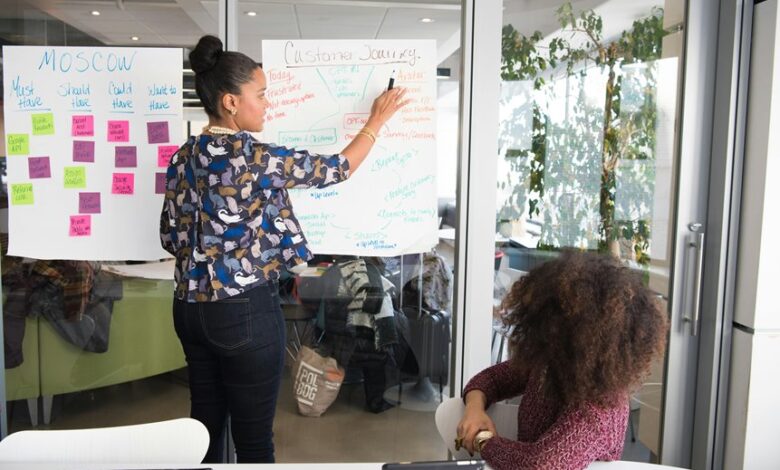Timewrap Taskus: Optimizing Task Management for Your Team

Effective task management is crucial for any team striving for success. Timewrap Taskus offers a structured approach to streamline workflows and enhance productivity. Its customizable features cater to diverse project requirements, while real-time collaboration tools foster communication. As teams face the challenge of adapting to fluctuating demands, understanding how Timewrap Taskus can transform task management practices becomes essential. What specific benefits can teams expect from implementing this tool?
The Importance of Effective Task Management
Effective task management is crucial for any team striving for success, as it directly influences productivity and efficiency.
By implementing strategic task delegation, teams can leverage individual strengths, fostering a sense of ownership. This approach enhances team accountability, ensuring that responsibilities are clear and performance is measurable.
Ultimately, effective task management empowers teams, promoting a culture of autonomy and collaboration, essential for achieving organizational goals.
Key Features of Timewrap Taskus
Timewrap Taskus offers a user-friendly interface designed to enhance team productivity through ease of navigation.
Its real-time collaboration tools facilitate seamless communication among team members, ensuring that everyone remains aligned on project objectives.
Additionally, the platform allows for customizable task workflows, enabling teams to tailor their processes according to specific project needs.
User-Friendly Interface
A user-friendly interface is essential for any task management tool, as it significantly enhances team productivity and collaboration. Timewrap Taskus excels in providing intuitive navigation and appealing visual aesthetics, ensuring users can effortlessly manage tasks while maintaining focus. This strategic design fosters an environment where teams can thrive, promoting efficiency and a sense of freedom in task execution.
| Feature | Description |
|---|---|
| Intuitive Navigation | Easy access to all functionalities |
| Visual Aesthetics | Engaging and clear design |
| Customization | Tailor to team preferences |
| Mobile Compatibility | Access on-the-go |
| User Support | Comprehensive help resources |
Real-Time Collaboration Tools
Real-time collaboration tools are vital for enhancing teamwork and ensuring seamless communication within a project.
Timewrap Taskus offers features like real-time updates, allowing team members to view changes instantly. This facilitates informed decision-making and promotes accountability.
Additionally, seamless integration with other platforms ensures that all tools work harmoniously, empowering teams to focus on their tasks without unnecessary disruptions or delays.
Customizable Task Workflows
Effective teamwork is further enhanced by customizable task workflows, a key feature of Timewrap Taskus.
These workflows offer custom workflow templates that allow teams to design adaptable task structures tailored to their unique processes.
Enhancing Team Collaboration
Enhancing team collaboration requires a strategic approach to communication and task management.
By fostering positive team dynamics, organizations can implement effective communication strategies that encourage open dialogue and mutual support.
Utilizing collaborative tools and frameworks enables teams to share insights, streamline workflows, and build trust, ultimately creating an environment where creativity flourishes and individual contributions are valued, allowing for greater collective success.
Prioritizing Tasks With Ease
Effective task prioritization is crucial for optimizing team productivity. By assessing task importance, utilizing an urgency versus importance matrix, and implementing daily prioritization techniques, teams can streamline their workflow and focus on what truly matters.
This structured approach not only enhances efficiency but also ensures that critical tasks are completed in a timely manner.
Task Importance Assessment
Prioritizing tasks is a critical component of successful task management, enabling teams to focus on what truly matters.
Effective task evaluation ensures that each assignment is assessed based on its significance, leading to priority alignment within the team.
Urgency vs. Importance Matrix
Understanding the distinction between urgency and importance is vital for effective task prioritization.
An urgency assessment evaluates tasks that require immediate attention, while an importance analysis identifies long-term value.
Utilizing the Urgency vs. Importance Matrix enables teams to categorize tasks effectively, ensuring that critical activities align with strategic goals.
This clarity fosters freedom in decision-making, empowering team members to focus on what truly matters.
Daily Prioritization Techniques
A structured approach to daily prioritization can significantly enhance a team’s productivity and focus.
By implementing daily goal setting, team members can identify key tasks aligned with overarching objectives.
Effective time allocation ensures that essential activities receive adequate attention, minimizing distractions.
This strategic framework empowers individuals to manage their workload efficiently, fostering a sense of autonomy and encouraging a balanced work-life dynamic.
Tracking Progress and Performance
While effective task management relies on clear objectives and delegation, tracking progress and performance serves as the backbone for maintaining accountability within a team. Utilizing progress metrics and performance indicators enables teams to identify strengths and areas for improvement. The following table outlines key elements to consider:
| Metric Type | Description | Importance |
|---|---|---|
| Progress Metrics | Measures task completion rates | Ensures accountability |
| Performance Indicators | Assesses individual contributions | Promotes team efficiency |
| Timeliness | Evaluates adherence to deadlines | Enhances project flow |
| Quality | Gauges work standards and accuracy | Maintains excellence |
Adapting to Changing Demands
As projects evolve, teams must remain agile and responsive to shifting demands in order to maintain effectiveness and productivity.
Implementing agility strategies facilitates quick adaptations, ensuring that resources align with current priorities. Effective demand forecasting enables teams to anticipate changes, allowing for proactive adjustments.
Conclusion
In a world where chaos reigns supreme and task management resembles a circus act, Timewrap Taskus emerges as the ringmaster, taming the wild beasts of procrastination and disorganization. With its dazzling features and intuitive design, it transforms teams into well-oiled machines, effortlessly juggling priorities and tracking progress. While some may still cling to outdated methods, the enlightened few will bask in the glow of productivity, leaving the task management clowns to wallow in their own confusion.




